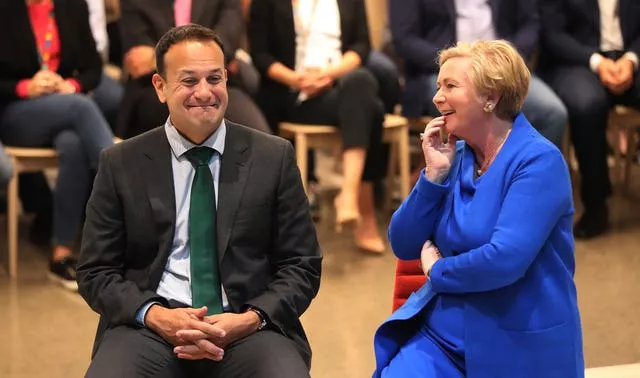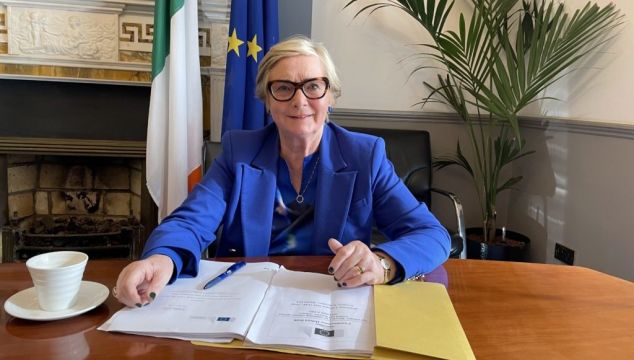Fine Gael MEP Frances Fitzgerald has said she will not contest the next European Parliament elections next year.
Taoiseach and party leader Leo Varadkar paid tribute to Mrs Fitzgerald as an example of an “ambitious” politician who is “willing to do the groundwork as well as the policy work”.
The former justice minister, who also served as tánaiste, business minister and children’s minister, did not state her reasons for the decision or her future plans.
She said in a statement that she would continue to advance the role of women as leaders in politics.
“Over recent weeks I have taken time to reflect on the 2024 European Parliament elections and have decided that I will not contest the Dublin constituency again,” she said in a statement.
“I will continue to work hard in the European Parliament until the end of this term in 2024, representing people across the Dublin constituency.
“As Fine Gael prepares for the 2024 European elections I look forward to supporting and campaigning for our candidates, and particularly for the person that I hope will be supported by the voters and become my successor in Dublin.”
The Limerick-born politician said “democracy and peace are under immense strain”, and European Parliament representatives are needed who are committed to the founding values of the EU.
Ireland is due to elect 14 MEPs to the European Parliament next June.

Mrs Fitzgerald, who served as a councillor, a TD and a senator before becoming an MEP in 2019, thanked her voters and supporters as she said politics can be a “lonely” place.
“I would like to thank all those without whom none of the work was possible – my family and friends, the many Fine Gael members and elected representatives, and my staff and teams of supporters,” she said.
“To the colleagues with whom I have served and whose support, mostly in the best and occasionally in the worst of times, has been of incalculable value, my deepest gratitude. Their advice, guidance, friendship and kindness were vital.
“Politics can be a singularly individual and, at times, lonely space, but it is also one in which strong, trusted and lasting relationships form and make tackling the challenges of democracy and governing possible.
“Much remains to be done. Children’s rights, business and ethical international trade and health issues will continue to be priorities for me.”
In November 2017, she resigned as then Taoiseach Leo Varadkar’s deputy amid political controversy over her handling of the Garda whistleblower scandal involving Sergeant Maurice McCabe.
The Disclosures Tribunal later cleared Mrs Fitzgerald, saying it accepted the evidence in her response to the O’Higgins Commission, set up to investigate some of the original complaints made by Mr McCabe.
Mr Varadkar said she had acted selflessly when she resigned in 2017.
“I have known Frances since I interned in her office as a student, serving with her on the front bench of Fine Gael in opposition and appointed to cabinet on the same day. I was honoured when she agreed to serve as my tánaiste when I became Taoiseach in 2017.
“In resigning from cabinet later that year, she did so selflessly in order to avoid an unnecessary general election.
“Her position and actions were subsequently vindicated the following year.
“It helped to teach me the importance of due process, the danger of the rush to judgment that happens so often in politics, but most of all, the dignity and respect that comes when someone puts their party and country first.
“I can honestly say that few others have achieved so much in politics as Frances Fitzgerald.”







